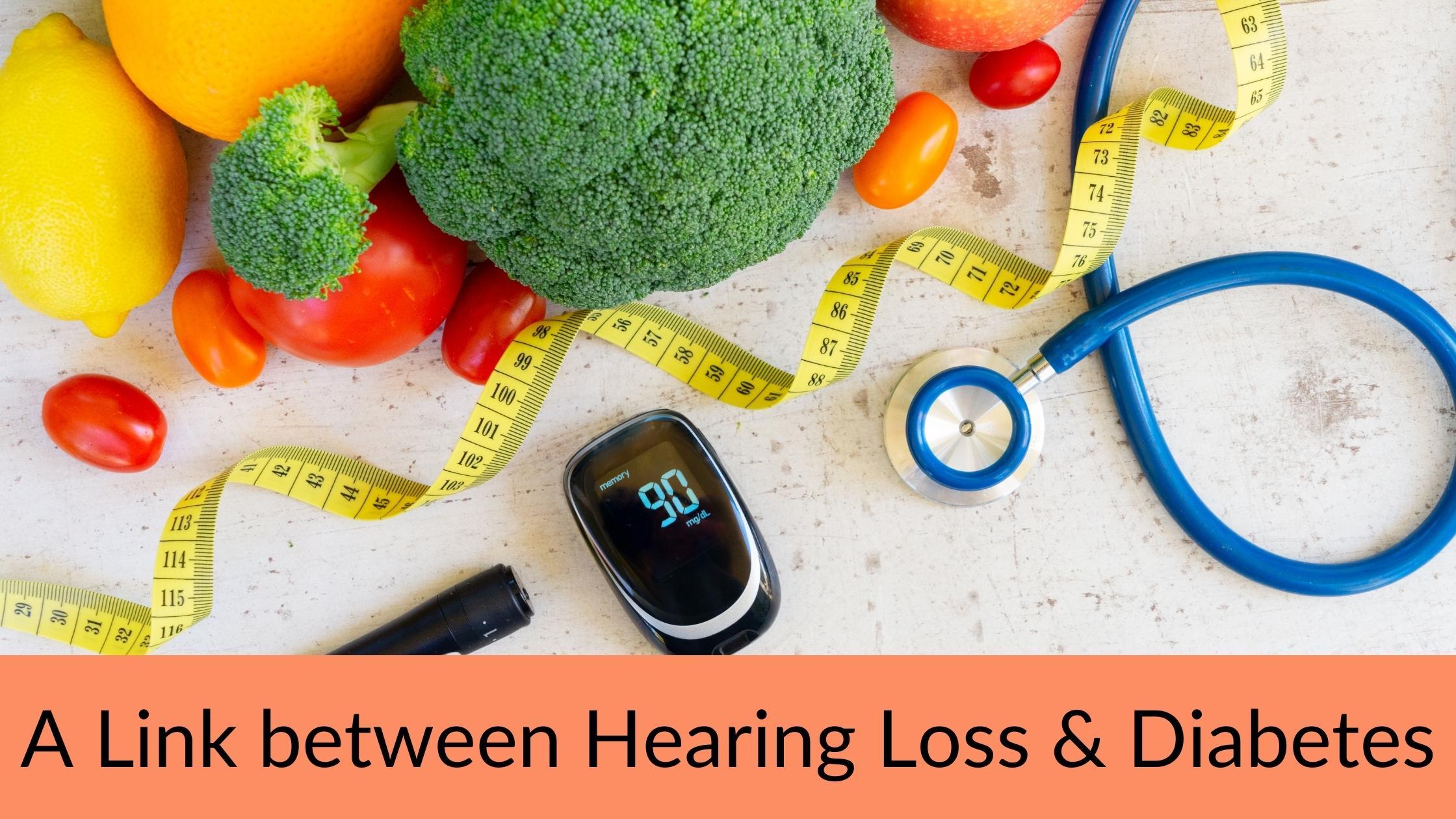
- Understanding the Different Types of Assistive Listening Technology - April 15, 2025
- Emergencies That Can Occur With Hearing Aids - April 5, 2025
- When to Consider a Second Opinion for Hearing Health - March 25, 2025
Studies show that people with diabetes can be twice as likely to develop hearing loss. More than 37 million people have diabetes in the U.S. and 133 million people are prediabetic according to the American Diabetes Association. Learning the early signs of hearing loss and practicing ways to reduce your risk are important ways you can protect your health.
Research Linking Hearing Loss & Diabetes
Various studies have established a correlation between diabetes and hearing loss. One significant study examining this link was conducted by researchers with the National Institutes of Health. Published in the Annals of Internal Medicine, this study involved over 5,000 participants. This population consisted of people with and without diabetes who had their hearing assessed. Researchers found that among people with diabetes:
- 21% experienced a mild or greater hearing loss of low or mid-frequency sounds compared to 9% of adults without diabetes.
- 54% experienced a mild or greater hearing loss of high-frequency sounds compared to 32% of adults without diabetes.
- Adults with prediabetes were 30% more likely to develop hearing loss
These findings show a major correlation between hearing loss and diabetes. It also reveals that prediabetic people are also significantly more likely to develop hearing loss. This means that a substantial population of people is more vulnerable to experiencing impaired hearing.
How Does Diabetes Impact Hearing Health?
Hearing loss is an underrecognized complication that diabetes can lead to. Researchers suggest that diabetes can affect hearing health by damaging the nerves and small blood vessels in the inner ear. High blood sugar levels caused by excess glucose that remains in the bloodstream can damage nerves throughout the body including the ears.
The inner ear plays a crucial role in how we process sound. There are thousands of hair cells in the inner ear that convert incoming soundwaves into electrical signals. These signals then get carried to the brain (via the auditory nerve) and the brain can further analyze as well as assign meaning to these signals. This process is what allows us to understand what we hear. Healthy blood flow is necessary for the health of blood vessels, nerves, and cells which is essential for the auditory system. So damage to these components reduces the capacity for these functions to be performed. This can contribute to hearing challenges and hearing loss, a permanent medical condition.
Common Signs of Hearing Loss
Hearing loss typically occurs gradually so it can take time to realize you are experiencing changes to your hearing health. Common signs of hearing loss include:
- Increasing the volume on the TV or other electronic devices
- Sounds seem muffled or distorted
- Having trouble following conversations with more than one person
- Tinnitus is a ringing like noise in the ears
- Difficulty hearing in environments with background noise like restaurants
- Pretending to hear, missing words or parts of a conversation
- Lip reading to help distinguish words
- Asking others to repeat themselves or speak louder
If you have diabetes or are prediabetic, knowing the signs of hearing loss can help you act early. Early intervention helps prevent impairment from worsening over time.
Ways You Can Protect Hearing Health
There are several ways you can protect your hearing health, reducing your risk of developing hearing loss. This is especially useful for people with diabetes or prediabetes. Tips include:
- Monitor diabetes: be sure to prioritize managing your diabetes effectively. This includes taking all necessary medications and keeping your blood sugar near targeted levels.
- Regularly check to hear: experts recommend having your hearing evaluated yearly. This is especially important for people who experience a higher risk of developing hearing loss. Hearing tests involve a painless process that measures hearing capacity in both ears. This identifies any hearing loss and the degree of impairment present. Getting your hearing checked regularly helps track any changes you may experience.
- Avoid exposure to loud noise: it is also useful to avoid other common causes of hearing loss including exposure to loud noise. You can do this by wearing hearing protection like headphones or earbuds, maintaining lower volume levels on electronic devices, and avoiding environments with excessive background noise.
Prioritize your hearing health by calling us today and scheduling an appointment for a hearing consultation!
